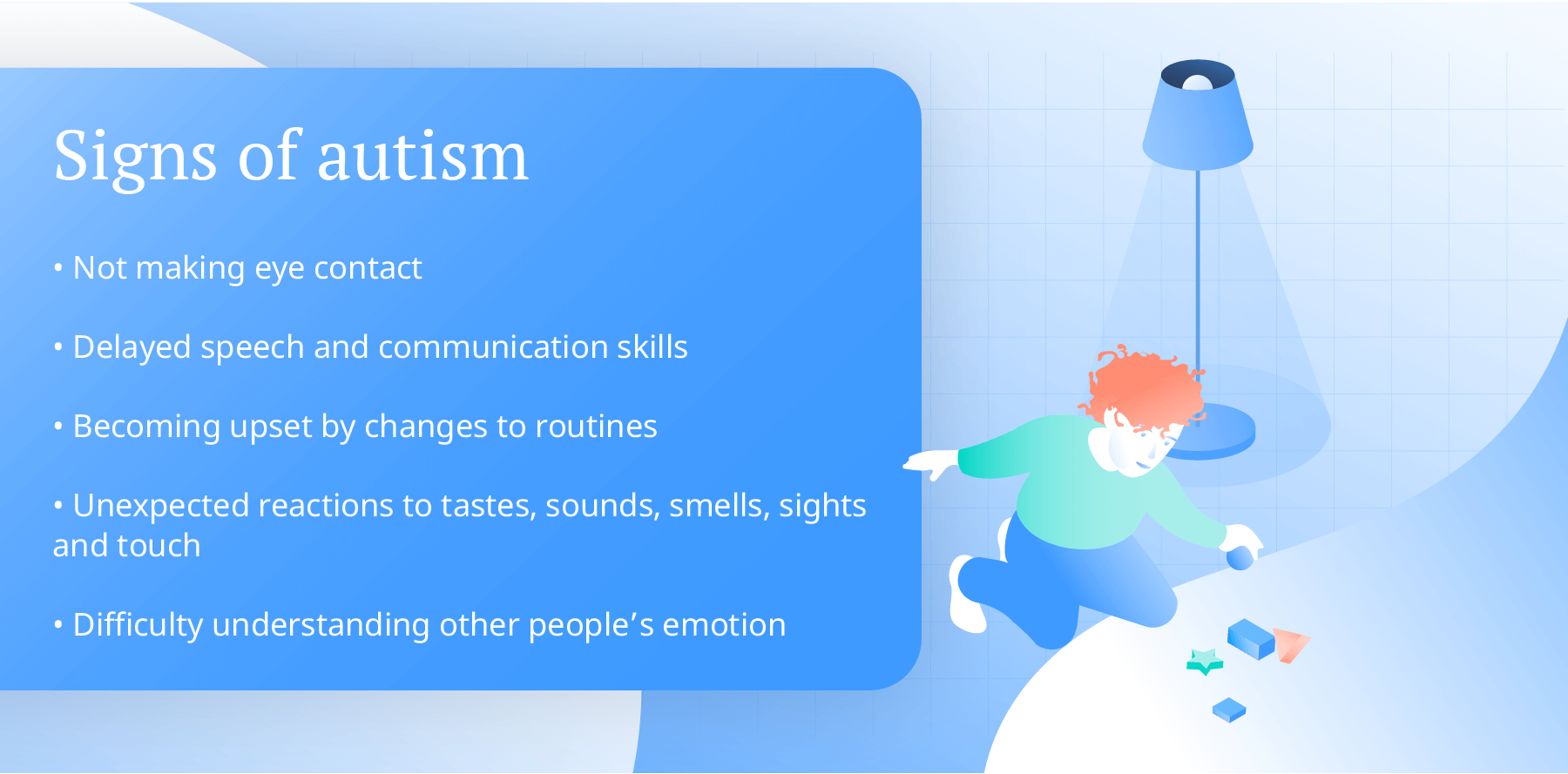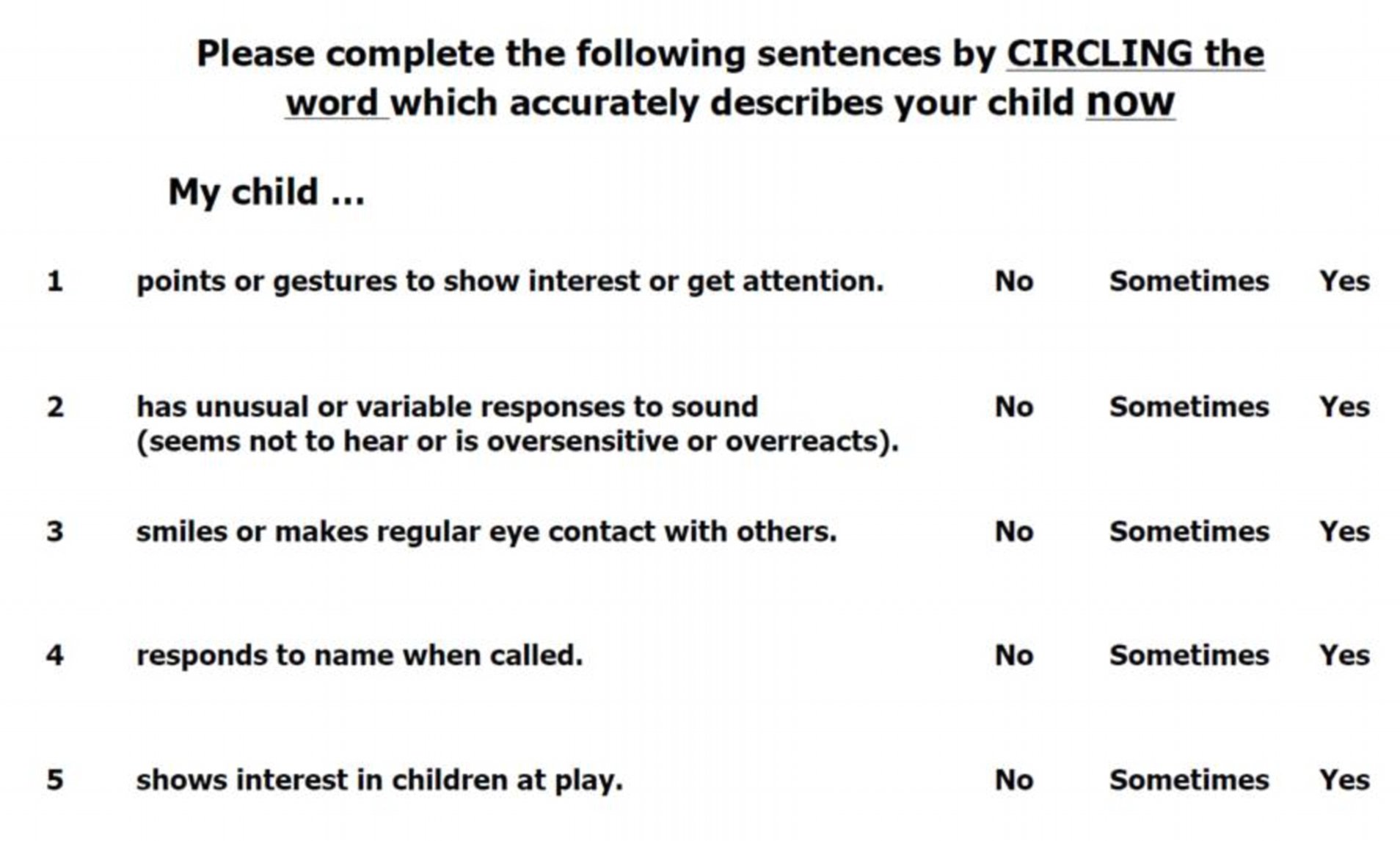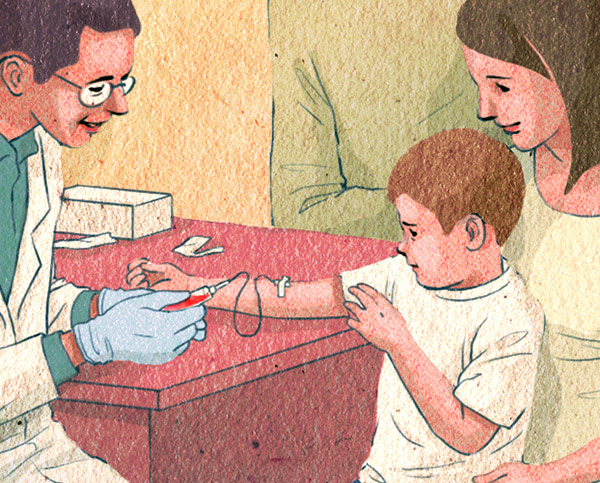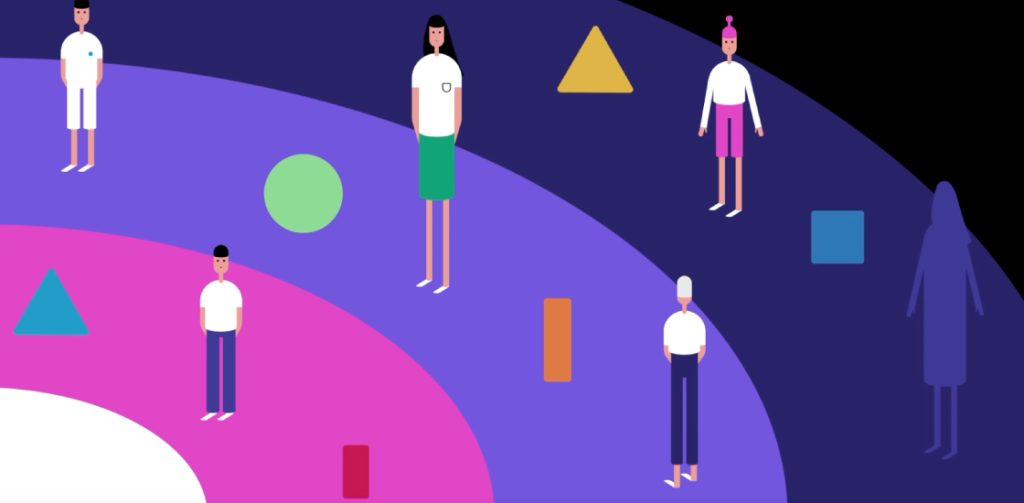Child Autism Test
The Child Autism Test is a useful and informative guide for any person who wants to know more about autism. The first step in understanding the child autism test is knowing what it is. Not every person that has autism takes this test, but many do as part of their diagnosis process. This blog post will discuss how the test works, why you should take it, and what information you can expect from taking such a test.
Contents
- 1 Understanding Child Autism
- 2 Decoding Child Autism Test
- 3 Types Of ASD Testing Tools
- 4 Questions To Ask Me Before I Take Test
- 5 The Procedure of Child Autism Test
- 6 Handling Results 0f Child Autism Test
- 7 Talking To a Professional
- 8 FAQs About Child Autism
- 8.1 My child was just diagnosed with ASD – what now?
- 8.2 How can I stop my child from being so aggressive?
- 8.3 How long do I have to wait for a diagnosis?
- 8.4 Is there any way I can prevent my child from developing ASD?
- 8.5 Can my child outgrow ASD?
- 8.6 What if I can’t afford to pay for therapies?
- 8.7 What are the long-term effects of ASD?
- 9 Conclusion
- 10 A Word From Therapy Mantra
Understanding Child Autism

Autism Spectrum Disorder (ASD) is a developmental disability that can cause significant social, communication, and behavioral challenges. ASD is diagnosed in individuals who have difficulties with verbal and nonverbal communication, social interactions, imaginative play and activities, and repetitive behaviors.
Types of Child Autism
There are different types of autism spectrum disorder:
Classic Autism: This type affects the way a person communicates and relates to others. It can also affect how they use their imagination and can lead to repetitive behaviors.
Asperger Syndrome: This type of autism affects the ability to socialize and communicate effectively with others. However, people with Asperger’s generally have normal intelligence and language skills.
Pervasive Developmental Disorder-Not Otherwise Specified (PDD-NOS): This is the diagnosis given to people who don’t fit into either of the other two categories, but still have significant autistic features.
Degrees of Child Autism
There are three degrees of autism: mild, moderate, and severe. Each degree has its own set of symptoms.
- Mild Child Autism: This is the least severe type of autism. Those who have it usually show some degree of impaired communication skills and unusual, repetitive behaviors early in life. They may also be socially awkward or uncomfortable with physical contact.
- Moderate Child Autism: This form affects a person’s ability to communicate effectively and develop social relationships on their own. They may also have difficulty with self-care skills and exhibit repetitive behaviors.
- Severe Child Autism: A person with severe autism may be completely unable to communicate and have significant intellectual disabilities. They may also exhibit self-injurious or aggressive behaviors.
Symptoms of Child Autism

The symptoms of child autism can vary from person to person, but there are some common signs that parents should look out for. Some symptoms of child autism include:
- Impaired communication skills: This can include a delay in learning to speak, not using a speech at all, or having trouble understanding what others say.
- Unusual responses to sensory input: Autistic people may be hypersensitive or undersensitive to sound, light, touch, and smell.
- Repetitive behaviors: This can include walking in circles, flipping objects over and over again, or needing things to be in a specific order.
- Interests that are unusual or restricted: Autistic people often have intense interests in specific topics or activities.
- Communication difficulties with nonverbal cues: Those who have child autism may be unable to read facial expressions and body language. They also usually do not understand sarcasm or jokes.
- Social and communication challenges: Those with this disorder often have difficulty making friends, maintaining friendships, and holding down a job. They may also not understand social cues from others or how to maintain positive relationships.
- Impaired imagination/creativity: Autistic people are typically unable to engage in imaginative play like other children their age. They may have difficulty with things like pretend play or coming up with new ideas.
Decoding Child Autism Test
The child autism test is a questionnaire that screens for autism spectrum disorder in children. It is designed to help parents and doctors identify any signs of ASD early on so that they can get the necessary treatment.
Information I Get From Child Autism Test
The child autism test will give you a score that indicates your child’s risk for autism. It will also provide information on the severity of your child’s symptoms and how they compare to other children with ASD.
The Reason I Take Child Autism Test
There are many reasons why you should take the child autism test. Some of them include:
- Find out if your child is on the autism spectrum: This test can help you figure out whether or not your son or daughter has ASD. If they do have it, the doctor will be able to make a diagnosis and give them the best treatment available for their condition.
- See what areas of development need work: The results from this test will tell you what areas your child needs to work on. If they need help speaking or with sensory processing, for example, the doctor can give them therapies and treatments that target these problems specifically.
- Test yourself: The test is also a great way for parents to see how well-informed about autism spectrum disorder they are so that they can better educate themselves about the topic.
The Time I Take Child Autism Test
The child autism test should be taken when a child is around two years old. This is the time when most children start to show signs of ASD. However, if you have any concerns about your child’s development at any age, don’t hesitate to take the test.
Accuracy of Child Autism Test
The child autism test is very accurate in most cases, but it’s important to note that this test alone cannot diagnose your child with ASD. It will give you an idea of how likely they are to have ASD based on their symptoms and other factors like age or intelligence.
NOTE: The child autism test is highly accurate, especially when used in combination with other screenings like the M-CHAT or CARS.
Types Of ASD Testing Tools
There are a few different types of ASD testing tools that are used to screen for autism spectrum disorder in children.
M-CHAT
The M-CHAT is one such tool and it’s typically used when a child is around two years old. It’s a simple questionnaire that asks parents about their child’s development. If the child shows any signs of developmental delay or ASD then further testing would be recommended.
CARS
The CARS is another type of tool that’s used to screen for autism spectrum disorder in children, typically around the age of two and again at five years old. It’s a more comprehensive test than the M-CHAT so it covers many different developmental areas including language comprehension, communication skills, interests, and play abilities.
ADOS-G
ADOS-G is another type of autism screening tool. It’s a more in-depth assessment than the CARS and it covers all areas of development such as social engagement, play skills, communication abilities, etc. This test can be used to diagnose ASD or pinpoint what kind (if any) your child may have.
MRI scans
MRI scans or brain scans can also be used to diagnose ASD in children. These are typically used as a last resort since they’re invasive and somewhat costly, so many doctors will try other methods before relying on them for diagnosis.
EEG scans
EEG scans are also used in diagnosing ASD. An EEG measures brainwave activity, which can vary depending on how a child’s nervous system is functioning. If they have autism spectrum disorder then it may be shown by abnormal EEG results like spikes or flat-lining of the waves being measured (depending on what kind of abnormalities you’re looking for).
Questions To Ask Me Before I Take Test
There are some important questions you should ask me before taking the child autism test. Some of them include:
- Do any of my son or daughter’s symptoms match those listed on the autism spectrum?
- How severe are my son or daughter’s symptoms?
- Does my son or daughter have any language delays?
- Does my son or daughter engage in imaginative play?
- How well-informed am I about autism spectrum disorder?
- What do I hope to gain from taking this test?
The Procedure of Child Autism Test
The child autism test is a questionnaire that screens for autism spectrum disorder in children. It is designed to help parents and doctors identify any signs of ASD early on so that they can get the necessary treatment.
The test is divided into two parts: the first part is for parents, while the second part is for doctors. Both parts involve answering a series of questions about your child’s development.
Sample Questions of Child Autism Test

Below are some sample questions from the child autism test: Does your:
- Son or daughter communicate with you?
- Daughter or son have any problems with sensory processing?
- Son or daughter seem to be interested in things that most children their age are not interested in?
- How well-informed am I about ASD and its symptoms?
- Do any of my son or daughter’s symptoms match those listed on the autism spectrum?
- How severe are my son or daughter’s symptoms?
- Son or daughter have any language delays?
- Daughter or son engage in imaginative play?
Result And Interpretation
After taking the child’s autism test, you will need to discuss the results with a doctor. They will be able to help you understand what your child’s diagnosis means and how to best help them.
The results from this test will tell you what areas your child needs to work on. If they need help speaking or with sensory processing. For example, the doctor can give them therapies and treatments that target these problems specifically.
Example of A Child Autism Test Result
Child Name: John Smith
Child Gender: Male
Date: February 21, 2011
Age Group: 0-12 months old (some parents like to take the test before their child reaches 12 months so they can have a better idea of how their baby will develop.)
Score: 24.24/30 “Your son is at risk for autism.”
The Results of Child Autism Test
John’s results show that he is at “risk” for autism. This means that while John shows some symptoms of autism, they are not severe enough to warrant an official diagnosis. You must speak with a professional if your child has tested positive because it will help them make recommendations regarding treatment and therapies.
NOTE: If you are looking for a diagnosis of your son or daughter, you must take the test.
Handling Results 0f Child Autism Test
The results of the child autism test can be difficult to handle, but it’s important to remember that this is not a diagnosis. It’s simply a tool that will help you and your doctor better understand your child’s development.
If your child does have ASD, don’t worry – there are plenty of therapies and treatments available that can help them. You and your doctor will be able to determine what treatment or therapy would work best for them.
Talking To a Professional

If you are concerned about your child’s development, you must speak with a professional. Not only will they be able to help diagnose the problem and recommend appropriate treatments, but they can also provide support and guidance throughout this difficult process.
Treatment And Therapies
There are several therapies and treatments available for children with ASD. Some of them include:
Speech therapy
Speech therapists teach autistic children how to communicate properly so that they can better express themselves verbally. Your child must get the help he or she needs as soon as possible because without treatment it may become harder for him or her to speak.
Occupational therapy
Occupational therapists help autistic children learn how to complete everyday tasks, like brushing their teeth or getting dressed. They also teach them how to interact with other people and how to control their emotions.
ABA therapy
ABA (applied behavior analysis) therapy is one of the most common therapies for autism. It involves breaking down behaviors into small steps. ABA therapists then use positive reinforcement to encourage the child to complete these tasks correctly and help them learn new skills.
Psychiatric evaluation
Your doctor may suggest that your child take a psychiatric evaluation if they have serious behavioral problems, including self-harm or aggression towards other people. These evaluations will let you know what’s causing their behavior and how to help them.
Medical intervention
If your child’s symptoms are severe, you may need to consider medical interventions. They involve medications that help reduce the severity of autism in children by altering levels of chemicals in the brain or helping with communication between neurons.
Case Study
Lily is a three-year-old girl who was recently diagnosed with autism. Her parents are concerned about her development and decide to take the child’s autism test. The results show that she is at risk for autism, so they speak with their doctor about treatment options.
The doctor recommends speech therapy, occupational therapy, and ABA therapy. Lily’s parents decide to start her in speech and occupational therapy first, and if her symptoms don’t improve after a few months they will consider ABA therapy.
FAQs About Child Autism
Below are some frequently asked questions about child autism:
My child was just diagnosed with ASD – what now?
If your child has been recently diagnosed with ASD, you will need to meet with a doctor or therapist who can help you understand what this diagnosis means for your child. They will let you know if your child qualifies for any therapies or treatment programs and how to help them get the most out of their new diagnosis.
How can I stop my child from being so aggressive?
If your child has been diagnosed with ASD, there may be several reasons why they are acting aggressively towards others – it could be because they are overwhelmed or frustrated. If this is the case, then you may need to make some changes in your home and schedule so that your child can feel more comfortable. You will want to find ways of reducing stress for them – such as setting up a routine where their clothes go before playtime begins each day.
How long do I have to wait for a diagnosis?
It can take some time before you and your doctor can confirm whether or not your child has ASD. You will want to schedule an appointment with a specialist who is qualified in autism spectrum disorders so that they can properly diagnose them. Don’t worry, though – the test itself only takes about 30 minutes!
Is there any way I can prevent my child from developing ASD?
Unfortunately, there is no real way to prevent autism. However, you can help improve your family’s chances of avoiding it by giving them regular checkups and getting early intervention if they show signs of the disorder. You should also make sure that you’re always following up with your doctor about any developmental concerns you may have.
Can my child outgrow ASD?
Some children with ASD do eventually “outgrow” it – but this is not the case for everyone. It is important to work closely with your doctor and therapist to help your child learn as many skills as possible so that they can live a happy and productive life.
What if I can’t afford to pay for therapies?
There are several different therapies available for autistic children, and many of them are covered by insurance. You should speak with your doctor or therapist about the best way to get your child the help they need – there may be sliding scale payment options or government assistance programs that you can apply for.
What are the long-term effects of ASD?
The long-term effects of autism can vary from child to child. Some may experience a few mild symptoms as they get older, while others may have more serious problems that require ongoing care and support. It is important to work closely with your doctor so that you can be prepared for whatever may come.
Conclusion
We have come up with a simple test that might help determine whether your child has autism. However, make sure to keep in mind that this is not a diagnosis and should be taken as only an indicator of potential symptoms. It’s strongly advised you discuss the results with your doctor if they seem to indicate any sort of developmental issues – they will know how best to help you and help your child overcome them.
A Word From Therapy Mantra
Your mental health — Your psychological, emotional, and social well-being — has an impact on every aspect of your life. Positive mental health essentially allows you to effectively deal with life’s everyday challenges.
At TherapyMantra, we have a team of therapists who provide affordable online therapy to assist you with issues such as depression, anxiety, stress, workplace Issues, addiction, relationship, OCD, LGBTQ, and PTSD. You can book a free therapy or download our free Android or iOS app.


